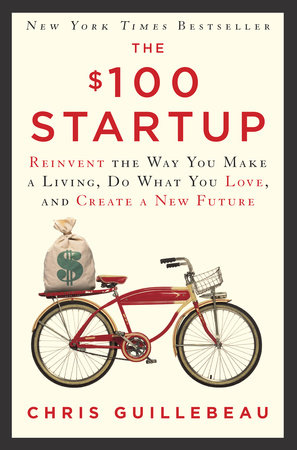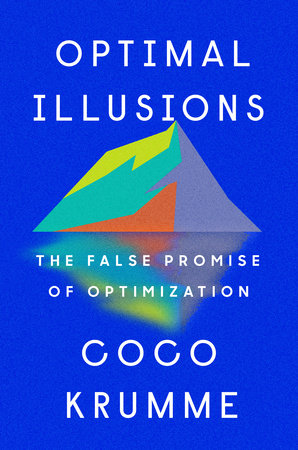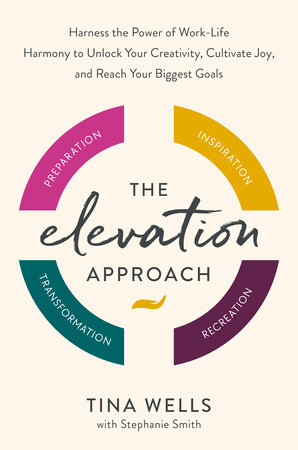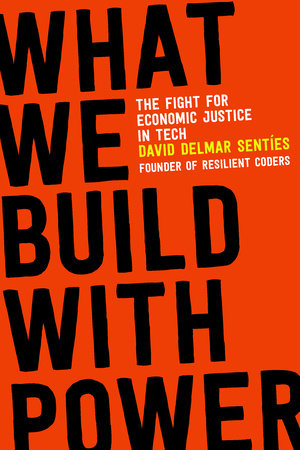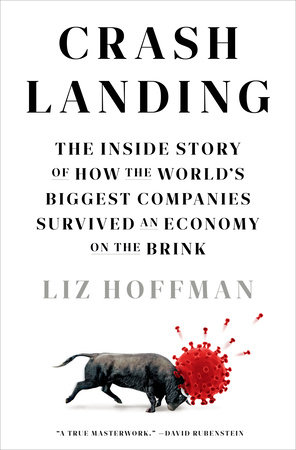Quick Summary
One Sentence Summary
“The $100 Startup” by Chris Guillebeau is a practical guide to creating a successful business with minimal investment, focusing on passion and resourcefulness.
Big Idea
The core message is that anyone can start a profitable business with a modest budget by leveraging their skills, interests, and a creative approach to entrepreneurship.
Five Key Ideas
- Start with Passion: Use your interests as a foundation for business ideas.
- Simplicity is Key: Minimal investment and simple business models can lead to success.
- Value Creation: Focus on how your business can solve problems or fulfill needs.
- Leverage and Adaptability: Utilize available resources and adapt to changing circumstances.
- Action Over Planning: Prioritize starting and learning as you go over extensive planning.
Actionable Advice
- Identify Your Skills: Make a list of what you’re good at and how these skills can address market needs.
- Start Small: Begin with a project that requires minimal investment.
- Engage with Customers: Get feedback and adjust your offerings accordingly.
- Embrace Flexibility: Be willing to pivot or change your approach based on what works.
About the Author
Chris Guillebeau is an entrepreneur, author, and speaker known for his expertise in travel, entrepreneurship, and personal development.
Read Next
- “The Lean Startup” by Eric Ries, for insights on building a startup efficiently.
- “The 4-Hour Workweek” by Timothy Ferriss, for unconventional approaches to business and lifestyle design.
- “Side Hustle: From Idea to Income in 27 Days” also by Chris Guillebeau, for more on turning passions into profit.
In Depth
Start with Passion
Passion is the driving force behind many successful $100 startups. Chris Guillebeau emphasizes that building a business around what you love isn’t just fulfilling; it’s practical. When you care deeply about your work, you’re more likely to put in the effort needed to make it succeed.
A detailed example from the book is Michael Hanna’s story. Hanna was laid off from his job but turned his misfortune into an opportunity. He had a passion for high-quality mattresses. Recognizing that big stores often overcharged for these products, he started a business selling mattresses at reasonable prices, using only a small storage space and a truck. His deep knowledge and genuine enthusiasm for his product helped him connect with customers and grow his business rapidly.
Guillebeau argues that your hobbies or interests can become viable business ideas. It’s about identifying the intersection between what you love to do and what other people are willing to pay for. This intersection is where passion turns into a business opportunity.
He stresses that passion alone isn’t enough; it must solve a problem or fulfill a need. Successful $100 startups find a way to make their passions relevant to others. This relevance is the key to generating income from what you love to do.
Guillebeau also points out that starting with passion can make the early stages of building a business more manageable. When you’re working on something you care about, the long hours and challenges don’t feel as burdensome. Passion provides a source of energy and motivation.
In the book, Guillebeau says:
“When you build a business around your passion, you tap into a source of energy that propels you and makes your work feel meaningful.”
This quote captures the essence of why starting with passion is crucial. It’s not just about making money; it’s about creating something that resonates with you on a personal level. This connection can be the difference between a business that fizzles out and one that thrives.
In summary, “Start with Passion” is about finding a sweet spot where your interests meet a market need. It’s about leveraging your enthusiasm and knowledge in a way that resonates with others. The story of Michael Hanna and the emphasis on the energizing power of passion illustrate this idea vividly. According to Guillebeau, passion is more than just a feel-good factor; it’s a practical tool for building a successful and fulfilling business.
Simplicity is Key
Chris Guillebeau in “The $100 Startup” strongly advocates for simplicity in business. He argues that complex business plans and hefty investments are not prerequisites for success. Instead, a simple, straightforward approach can be incredibly effective.
One compelling example from the book is that of Brett Kelly. Brett wrote an eBook called “Evernote Essentials,” a guide for the popular note-taking software. With a basic investment in a website and minimal marketing, Brett’s simple idea turned into a substantial income. His success wasn’t due to a complex business model or significant financial outlay. It was his straightforward approach, providing clear, valuable information that resonated with Evernote users.
Guillebeau stresses the importance of starting lean. Overcomplicating things can lead to unnecessary expenses and distractions. A simple product or service, when executed well, can meet customer needs effectively. This simplicity also allows for greater agility and adaptability, which are vital in responding to market changes or customer feedback.
The emphasis on simplicity extends to the operational aspects of the business. Guillebeau suggests automating or outsourcing tasks where possible. This approach keeps the business model streamlined and the entrepreneur focused on the most important aspects of their business.
In his words:
“Complexity is not an accomplishment; simplicity is.”
This quote encapsulates the ethos of the $100 Startup mindset. It’s a reminder that success isn’t measured by how intricate your business plan is or how many features your product has. Success is about meeting a need in the simplest, most effective way possible.
The story of Brett Kelly and his eBook is a testament to the power of simplicity. It shows that with a clear value proposition and a straightforward approach, a small startup can achieve significant results. Guillebeau’s emphasis on simplicity is a call to strip away the unnecessary, focus on the core of your business idea, and execute it well.
Value Creation
Chris Guillebeau emphasizes that successful businesses are built on value creation. It’s not just about selling a product or service; it’s about solving a problem or fulfilling a need in a way that adds value to the customer’s life.
A detailed example from “The $100 Startup” is the story of Gary Leff. Gary started a service called “Book Your Award,” helping people use their frequent flyer miles effectively. He realized that many people had accumulated miles but struggled to redeem them for valuable flights. Gary’s service addressed this problem, providing expert advice on maximizing the value of frequent flyer miles. This business idea didn’t require a huge investment, but it offered immense value to customers who were otherwise leaving money on the table.
This idea of value creation is central to Guillebeau’s philosophy. He points out that understanding what your customers truly value is crucial. It’s not always about the lowest price or the most features; it’s about what makes a real difference in their lives.
Guillebeau stresses the importance of listening to your customers and understanding their needs. This understanding allows you to refine your offerings and ensure that you’re continually adding value.
In the book, he states:
“If you can provide a solution that saves people time, money, or hassle, you’re on the right track to creating a valuable and sought-after offering.”
This quote highlights the essence of value creation. It’s about making life easier, better, or more enjoyable for your customers. When your business achieves this, it’s not just selling something; it’s providing a tangible benefit.
Gary Leff’s business is a prime example of value creation. He didn’t just sell a service; he offered peace of mind, convenience, and maximized benefits to his customers. His success underscores Guillebeau’s message: focusing on how you can add real value is the key to creating a successful and sustainable business.
Leverage and Adaptability
Chris Guillebeau in “The $100 Startup” highlights the importance of leveraging available resources and being adaptable in business. He argues that successful entrepreneurs don’t wait for perfect conditions; instead, they make the most of what they have and adapt to changes along the way.
An excellent example from the book is Susannah Conway. After a personal tragedy, she began a blog to express her grief and share her journey of healing. What started as a personal project turned into a full-fledged business. Susannah leveraged her existing skills in photography and writing, and her blog gained a following. She then adapted her offerings based on reader interest, creating e-courses and books that catered to her audience’s needs.
This story illustrates the concept of leveraging personal skills and resources. Guillebeau emphasizes that you don’t need a large capital investment to start a business. Often, your existing skills, experiences, and tools are enough to get started.
Adaptability is equally important. Markets change, customer preferences evolve, and unforeseen challenges arise. The ability to pivot, tweak your offerings, or change direction is crucial in maintaining a successful business.
Guillebeau points out:
“The ability to adapt is a secret weapon of the $100 startup.”
This quote encapsulates the essence of leverage and adaptability. These qualities are secret weapons because they allow entrepreneurs to navigate challenges and capitalize on opportunities with minimal resources.
Susannah Conway’s journey from personal blogging to creating a thriving business exemplifies this. She didn’t have a grand plan or substantial investment; she started with what she had and was open to evolving her business based on feedback and opportunities.
In summary, leverage and adaptability are about making the most of your current assets and being open to change. Guillebeau’s advice encourages entrepreneurs to start with what they have and be ready to adapt as their business grows and the market changes.
Action Over Planning
In “The $100 Startup,” Chris Guillebeau advocates for taking action over extensive planning. He suggests that while some planning is necessary, getting started and learning through doing is often more valuable than trying to create the perfect plan.
A striking example from the book is the story of Kyle Hepp, a wedding photographer. Kyle didn’t have a detailed business plan when she started; instead, she took action by offering her photography services and learning on the job. She honed her skills, built a portfolio, and gradually raised her prices as she gained more experience and reputation. Kyle’s success wasn’t the result of a meticulously crafted plan but rather her willingness to take action and learn along the way.
This approach is at the heart of Guillebeau’s philosophy. He argues that many would-be entrepreneurs get stuck in the planning phase, trying to account for every possible scenario. This over-planning can lead to inaction and missed opportunities.
Guillebeau advises:
“Planning is useful, but action is essential. Don’t wait to have everything figured out to start your business.”
This quote emphasizes the importance of taking the first steps, even if you don’t have all the answers. The process of starting and running your business will provide valuable lessons that no amount of planning can replicate.
Kyle Hepp’s story embodies this principle. She didn’t wait until she had a perfect strategy. She started with what she knew, adapted along the way, and built a successful business. This example illustrates that action, coupled with a willingness to learn and adjust, can lead to success even without a detailed blueprint.
In essence, “Action Over Planning” encourages aspiring entrepreneurs to take the leap. While some planning is necessary, Guillebeau’s advice is clear: don’t get bogged down in it. Start, learn, adapt, and grow.
Actionable Advice
- Identify Your Skills: List your talents and how they could meet market needs.
- Start Small: Launch with a project that requires minimal investment.
- Solve a Problem: Focus on creating solutions that address real-life issues.
- Seek Feedback: Regularly ask customers for input to improve your offering.
- Keep It Simple: Avoid complexity; aim for a straightforward business model.
- Use Available Resources: Leverage existing skills and tools to start your business.
- Be Adaptable: Stay open to change and ready to pivot when necessary.
- Learn by Doing: Prioritize action over extensive planning and learn on the go.
- Network Smartly: Connect with others in your field for ideas and support.
- Manage Finances Wisely: Keep track of expenses and revenue for financial health.
- Focus on Value: Always consider how your business adds value to customers.
- Embrace Marketing: Utilize cost-effective ways to promote your business.
- Evaluate and Iterate: Regularly assess your business and make necessary adjustments.
About the Author
Chris Guillebeau is a bestselling author, entrepreneur, and speaker known for his expertise in startups and unconventional lifestyles. Born on April 18, 1978, in the United States, he embarked on a mission to visit every country in the world before turning 35, achieving this feat in 2013. Guillebeau’s work revolves around inspiring others to lead non-conformist lives and pursue entrepreneurial ventures with minimal resources. His books, including “The $100 Startup” and “The Art of Non-Conformity,” encapsulate his philosophy of self-employment, creativity, and personal empowerment. Guillebeau’s beliefs center on the idea that you don’t need a traditional job to live a fulfilling life. Instead, he advocates for creating personal freedom through micro-businesses and leveraging one’s passions. He holds an annual conference, the World Domination Summit, in Portland, Oregon, focused on community, adventure, and service. Guillebeau’s writing and workshops have guided thousands towards transforming their work and lives, emphasizing that it’s possible to achieve financial independence and make a positive impact in the world with small-scale, meaningful ventures.
Read These Next
You might like these similar books
- “The Lean Startup” by Eric Ries
- “Side Hustle: From Idea to Income in 27 Days” by Chris Guillebeau
- “The 4-Hour Workweek” by Timothy Ferriss
- “Crush It!: Why NOW Is the Time to Cash In on Your Passion” by Gary Vaynerchuk
- “Rework” by Jason Fried and David Heinemeier Hansson
FAQ
Q: Who should read “The $100 Startup”?
A: Anyone interested in entrepreneurship, starting a business with minimal investment, or seeking to turn a passion into a profitable venture.
Q: Do I need business experience to understand the book?
A: No, the book is written in simple language, making it accessible even if you have no prior business experience.
Q: Can this book help me with ideas for a side hustle?
A: Yes, it provides insights and examples that are particularly useful for starting side hustles.
Q: Is “The $100 Startup” only about starting a business with $100?
A: Not strictly. It’s more about the principles of starting small and growing, regardless of the exact amount.
Q: Does the book provide practical steps to follow?
A: Yes, it offers actionable advice and steps for starting and growing a micro-business.
Q: Are there real-life success stories in the book?
A: Absolutely. The book is filled with various case studies and success stories of individuals who started successful ventures.

